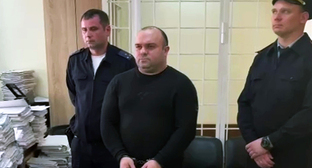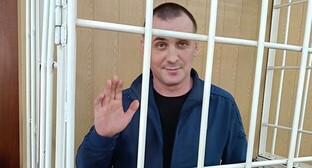08 April 2003, 19:14
Batal-hajji
Ingush sheikh, founder of one of kadirit branches (vird), follower of the sheikh Kunt-hajji. Born in the settlement of Surkhokhi (thus his nickname ? Surkhokhi Wisent), now Nazran County, Republic of Ingushetia, in mid-19th century. A legend goes that he realized his election after the Prophet Muhammad appeared before him and offered him to make a choice between the blissfulness of earth and heaven. Batal-hajji, as they say, chose that of earth, hoping to deserve the "future life" (al-akhira) with his way of life. The sheikh had much authority, was distinctly hospitable, and could attract people. The saying goes that he could turn invisible, move fast in space, and "cast a spell" on his followers. The gossip went that someone wishing to accept his teaching but refusing to do so for some reason was suffering and feeling torture from the unknown powers. First Batal-hajji's followers were the residents of Ingush settlements of Surkhokhi, Nazran, Nasyr Kort, Plievo, and Upper Anchalyk. Unlike in other kadiriya virds in the Northern Caucasus, whose zealousness is marked by expressive movements, Batal-hajji's murids form a circle (elder ones seated, younger ones standing) and perform religions anthems (nazm) slightly rocking, clapping rhythmically, and refraining la ilakha illa-l-lakhi (There is no God but the Allah). The typical characteristics for the community members were considered spiritual power, courage, mutual assistance and support in difficult situations. One of their attributes was a dagger. Batal-hajji's vird was one of the most closed ones. Like in Vis-hajji's vird, women were prohibited from marrying a murid from another community; for instance, in Bammatgirey's, Chimmirza's, or Kunt-hajji's virds, free choice of a fiance was possible, but the newlyweds were warned that on Doomsday every believer can only be next to his sheikh, and thus the spouses belonging to different virds will definitely be separated. Dancing and playing musical instruments is not normal at the weddings. Polygamy is not denounced.
Batal-hajji's exact death date is unknown; supposedly, he died between 1910 and 1920.
Batal-hajji's sons actively struggled against the Soviets; almost all of them were shot down: Mussa in 1925, Isa in 1930, Ali in 1935; Muhammad, Nadjmutdin-effendi's follower, was killed at the attempt to cross the Turkish border; Kureysh headed a guerilla movement in Checheno-Ingushetia and North Ossetia, was imprisoned, returned to his homeland in 1957 after a 10-year term, headed his vird, died in 1964. Batal-hajji's daughter Zuleykha, who resided in the settlement of Plievo, was known for her healing and amulet-making gifts. She was of the healer category called khuma khuush bolu nakh (Ingush and Chechen for "a person who knows everything"). During the Communist regime, Batal-hajji's murids tried to spread out the religion knowledge among Checheno-Ingushetia residents. For instance, in the settlement of Ekazhevo (head of the community was Muhammad Arapiev) in late 1960s, Umar Kholukhoev taught Arabic and Koran readings to children; Hakyash Tochiev broadcasted Muslim sermons via an autonomous radio line. The Party authorities detected and prohibited such activities, and the enthusiasts were exiled.
In 1929-1930, there were around 800 Batal-hajji's followers; in 1968, in the settlement of Surkhokhi (head of the community was Israil Belkhoroev), there were 400 murids. At present, Batal-hajji's followers are active in Nazran, Sunzhen, and Malgobek counties. Batal-hajji's sheikh's mazar is located in the settlement of Surkhokhi.





Комментирование через Кавказский узел